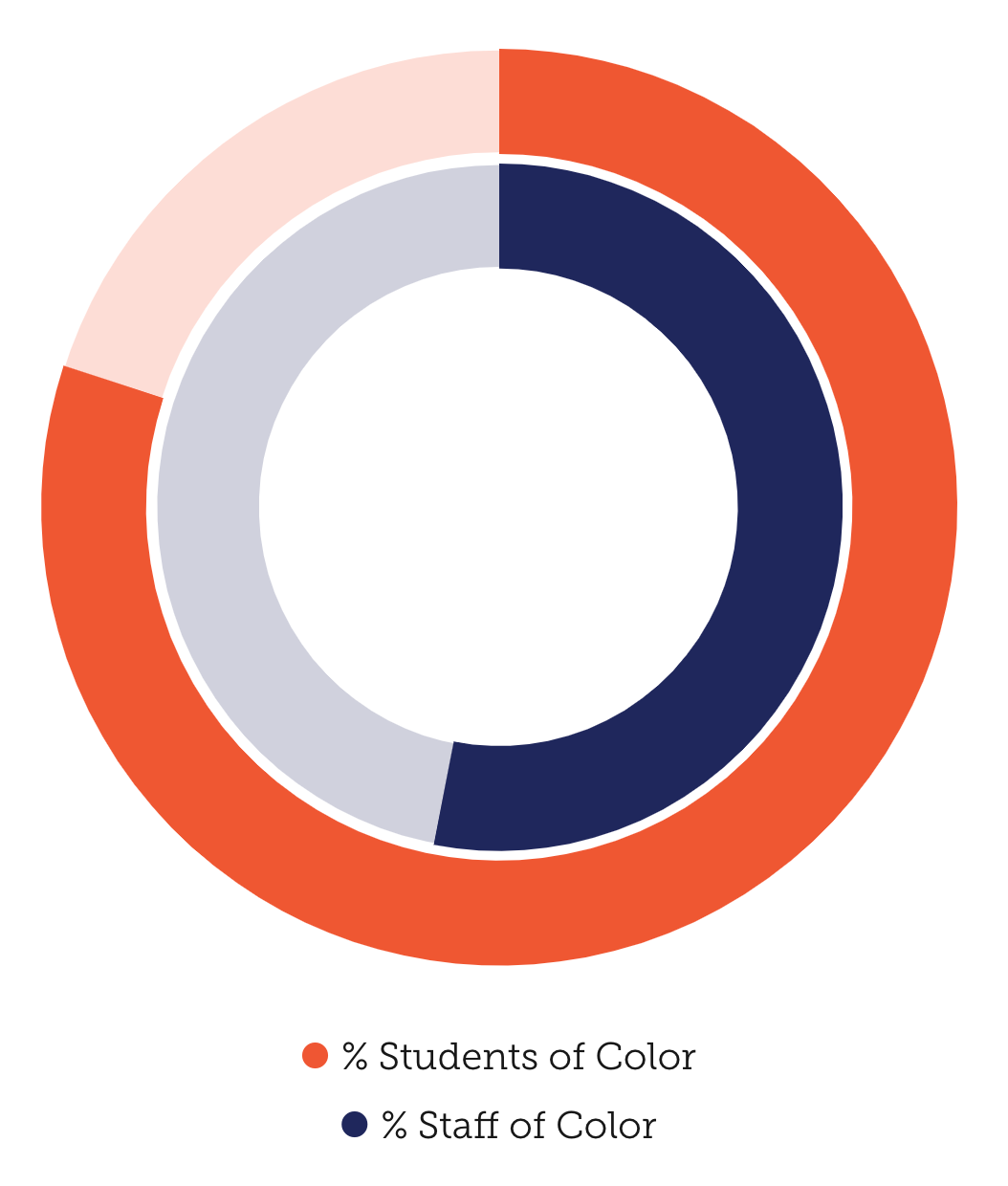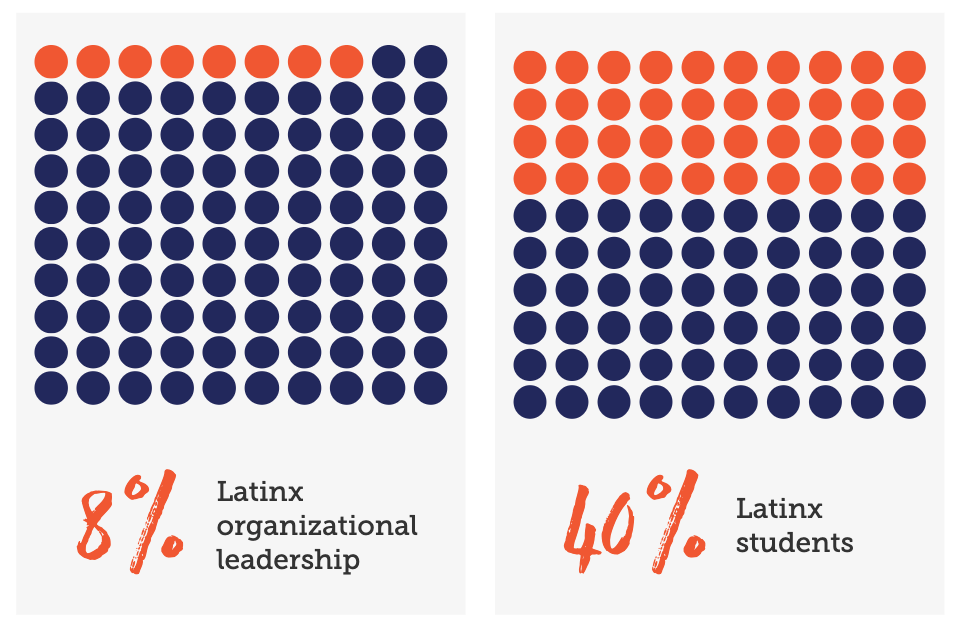Aggregated data on diversity, inclusion, and equity in the social sector has never been prioritized, collected, and communicated in the education field — until Unrealized Impact.
Creating diverse, inclusive, equitable, and antiracist organizations is a precondition for achieving social justice.
Unrealized Impact 2.0: The Hard Truth About Where We Are and Ways to Move Forward builds on findings from the original groundbreaking report published in 2017, offering a bold call to action.
We must do better to take care of one another and to be worthy of the communities we serve.
What happens in a diverse, inclusive, equitable, and antiracist organization?
The culture conveys that all people are valued
Identity markers no longer predict staff outcomes
Teams understand, represent, and center the communities they serve
The sector remains grossly unrepresentative of the students served, and organizations continue to struggle to build and sustain inclusive cultures and equitable systems and structures.
Key Demographic Findings

No Data Found
- % Students of Color
- % Staff of Color
Talk, but little progress
Underrepresentation continues.
The nearly 500 organizations surveyed serve 80% Students of Color, yet employ only 53% Staff of Color.
Who runs the (education) world?
Still white people.
CEOs for school districts and charter schools are more racially diverse — but only marginally so: 73% of CEOs are white.
Philanthropic organization CEOs, who are perhaps best positioned to influence and fund progress, are the least racially diverse of all: 80% are white.


Persistent representation gap among fast-growing
Latinx population.
The most pronounced disparity in representation is within the Latinx population, comprising 40% of students in our sample but only 8% of organizational leadership. Further, Latinx students are the least likely to have a teacher of their same racial or ethnic group despite demonstrated benefits of teacher-student identity matching.1
Deconstructing white supremacy is not solely the responsibility of People of Color and people with other historically marginalized identities.
It is everyone’s work.
Key Staff Experience Findings
400+ years and counting...
Anti-Blackness persists.
Black staff, particularly Black women, report among the least positive experiences on DEI measures. For example, Black women report among the lowest scores of all respondents on the Inclusion and Equity Indices and among the highest rates of experiencing bias at work.
No Data Found
- Black respondents: among lowest agreement that they can bring their whole selves to work
- White respondents: highest agreement that they can bring their whole selves to work
The data tells the story
Who gets to thrive?
Multiracial and Black staff are least likely…
Nonbinary staff are less likely than women or men…
Women are less likely than men…
LGBTQIA+ staff are less likely than non-LGBTQIA+ staff…
Further, staff with historically marginalized identities report experiencing more bias:
Native American/Indigenous staff are the most likely racial/ethnic group…
Non-binary staff are more likely than women or men…
Women are more likely than men…
LGBTQIA+ staff are more likely than non-LGBTQIA+ staff…
Explicitly eradicating anti-Blackness within our organizations, policies, practices, and cultures is central to becoming diverse, inclusive, equitable, and antiracist organizations, and is at the very heart of pursuing justice.
Promising Practices
While successful advancement of DEI and antiracism requires a tailored approach, these promising practices are correlated with stronger representation in the “Advanced Profile.”
Moving Past Random Acts of DEI
Diversifying Leadership Beyond the CEO
Sharing Power Through Meaningful Engagement
Moving Beyond Icebreakers to Authentic Relationships
Infusing Accountability for Things That Matter
Resources & Recommendations
Do Better
Many people believe that diversity is the most accessible, actionable, and measurable aspect of DEI… that if an organization is diverse, the rest will naturally follow. Many organizations, therefore, choose diversity as the place to start.
But that’s not what the data shows; diversity is not enough.
Organizations must address and change their culture, habits, decision-making, systems, structures, and ways of communicating. Sustainable change requires fundamental shifts. We’re here to help.
Craving a different angle?
Ready to get started - or restarted?
Explore the Commitment and Recommitment Guides
Looking for additional insights and analysis?
Contact Us
Have questions about the report?
Interested in a tailored Unrealized Impact 2.0 session?
Looking for a partner to support your organization’s DEI and antiracism efforts?
